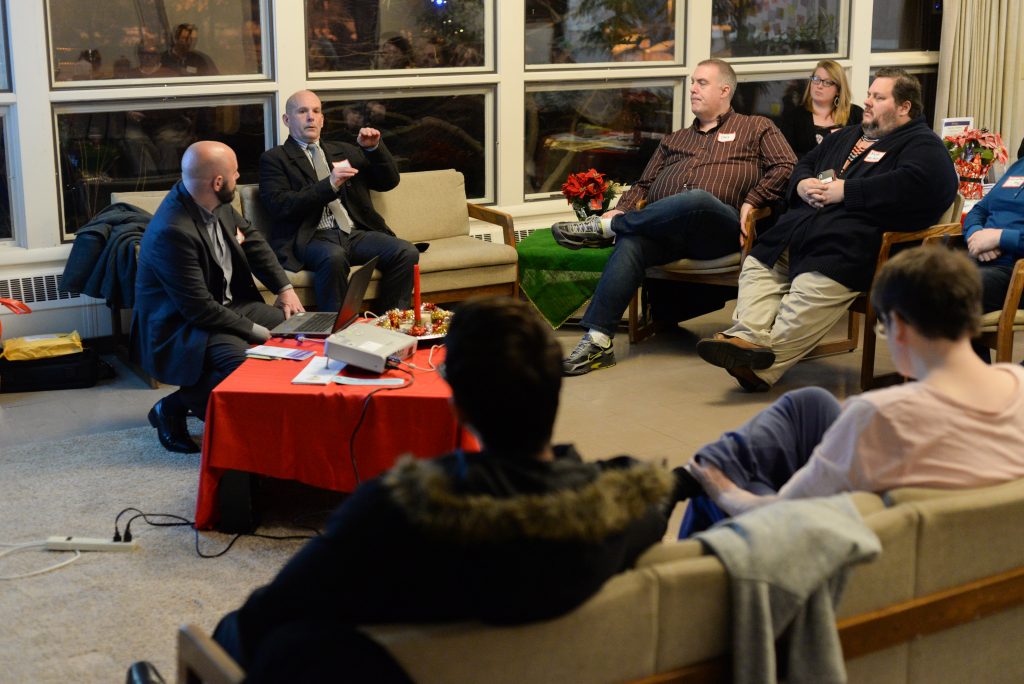
As part of a series of workshops spanning New York state, the Unitarian Universalist Congregation of Binghamton hosted a New York State LGBTQ Know Your Rights session on Tuesday night to discuss protective laws for people in the LGBTQ community.
Sponsored by a number of local organizations, including Pride and Joy Families and the Binghamton Pride Coalition, the free session consisted of an informational presentation and was followed by a Q&A session.
Representatives from the New York State Department of Constituency Affairs and Division of Human Rights organized the presentation, the latest on a statewide tour of informing LGBTQ residents of their protected rights, which are encoded in state law under statues such as the New York State Human Rights Law and the Dignity for All Students Act.
The Human Rights Law prohibits discrimination in a number of areas, including employment, housing, credit, education institutions and public places. It is designed to protect individuals on a variety of factors including sex, gender identity and sexual orientation. The Dignity for All Students Act serves as a supplement to the law, enforcing the same rights but extending coverage to bullying and harassment in schools.
LGBTQ individuals in New York state are also protected by regulations established by the Department of Financial Services and the Department of Health Services, which include measures to prevent insurers from discriminatively denying coverage.
David Contreras Turley, director of constituency affairs for New York state, helped organize the event and said the session is intended to provide support for members of the LGBTQ community across the state. Appointed by Gov. Andrew Cuomo in September 2015, Turley was part of the coalition to successfully pass marriage equality in New York.
“The objective of the session is to talk to LGBTQ New Yorkers and inform them that the state government is here to help,” Turley said. “We are devoted to equality and we want our constituents to know of the rights they have.”
According to Ron Zacchi, one of the event’s presenters and the assistant director of intergovernmental affairs at the New York State Office of Temporary and Disability Assistance, if a person feels they have been discriminated against, they can file a complaint online or in person, which will prompt New York’s Division of Human Rights to organize an investigation into the claim. If the investigation finds discrimination occurred, involved individuals could see a number of results, including a private agreement to remedy the discrimination or a public hearing before Helen Diane Foster, New York’s commissioner of human rights.
Alan NeJame, ‘76, said he learned more than expected at the session and was pleased to see community support for the event. NeJame, a 64-year-old resident of Johnson City, said he has previously hosted LGBTQ awareness events at the Unitarian Universalist Congregation of Binghamton, and wanted to come to Tuesday’s session to show support for the statewide tour.
“I wanted to show support and be more insightful on the matter,” NeJame said. “I thought [the session] was great. I was pleasantly surprised by the attendance and I really loved how informative it was.”


